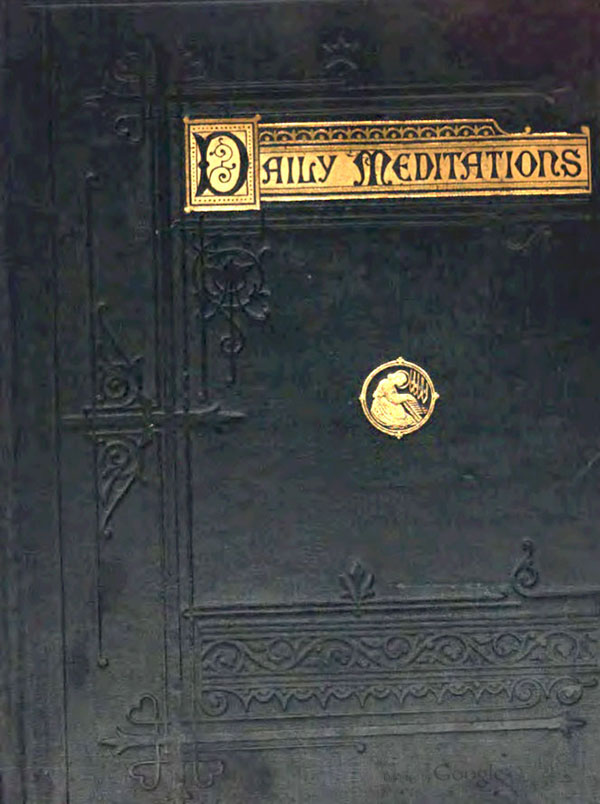We don’t worship in the first-century way

Cover of Bowen’s Daily Meditations
Today's Devotional
Everything must be done so that the church may be built up—1 Corinthians 14:26 (NIV).
On successive Sabbaths, having a definite object in view, we visit various churches.
We notice many points of difference in their mode of celebrating divine worship and seeking their own edification; but at length we come to a worshiping body whose customs are so fundamentally different from those of the churches previously visited, that the differences among the latter appear to be quite trifling in comparison. In the church that we have now stumbled upon in an out of the way place (in the Epistle to the Corinthians), instead of one man officiating for all, while all sit silent except when they sing or make common responses, and where everything is arranged to exclude as much as possible anything like spontaneity, we find that when the members come together, “every one has a psalm, has a doctrine, has a tongue, has a revelation, has an interpretation.” One, two, or three speak in an unknown tongue; and another interprets. Prophets speak, two or three in succession. If anything is revealed to another who sits by, the first holds his tongue.
May we not learn from this that the Holy Ghost loves a larger liberty than is allowed by our arrangements? We cling to them as though they had been imposed by the solemn and unalterable decree of the Great Head of the Church: and a proposition to depart from them is regarded almost as treason against Christ. It is singular however that the apostolic church should be so completely defunct to us, as regards the force of its example in these matters. There were some great abuses in those early churches; think you they were the greatest conceivable abuses? Is it not possible that the apostle Paul coming into one of our staid and orderly churches would look upon the whole of the decorous and tasteful service as one unmitigated abuse? He would perhaps say, “Is the Holy Ghost dead, that you make no provision for his manifestation? Is there no communion of the saints in the assemblies of the saints?”
About the author and the source
While a young man, George Bowen became an infidel. After eleven years feeding his mind with atheist literature, he was deeply impressed by the joy he saw in a young woman who discovered Christ on her deathbed. He prayed that God, if there were a God, would show him what to do. Shortly afterward, a librarian gave him William Paley’s Evidences by mistake—he had requested another book. He read a little, was impressed by the power of Paley’s arguments, and finished the book. His arguments against Christianity crumbled and he yielded to Christ, renouncing his wealth and becoming a missionary in Bombay, where he lived in absolute dependence on God.
George Bowen. Daily Meditations. Edinburgh: Edmonston and Douglas, 1873.





